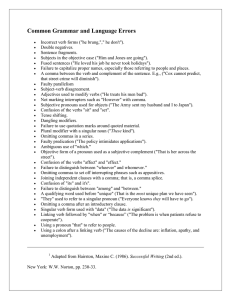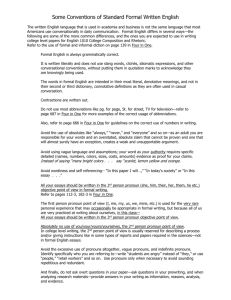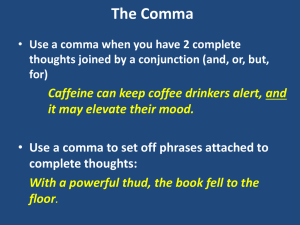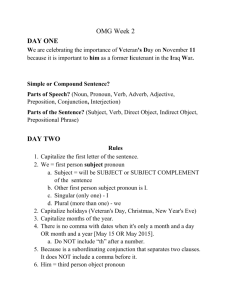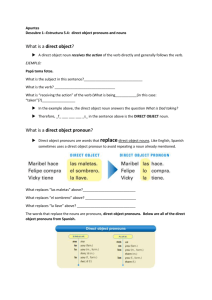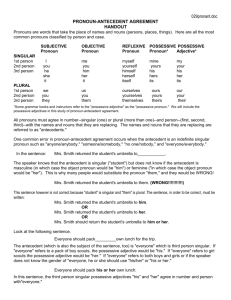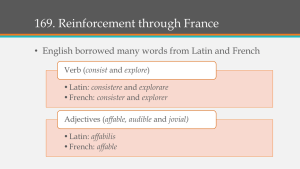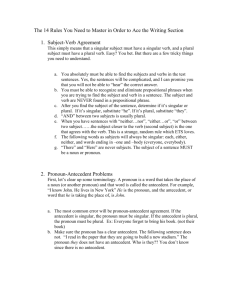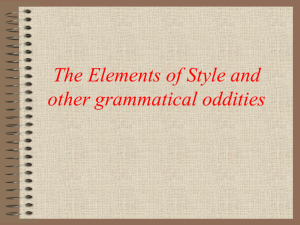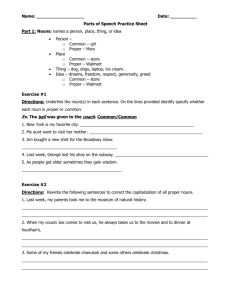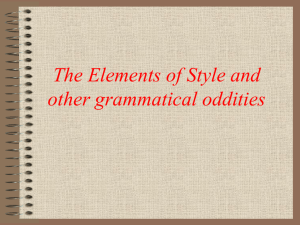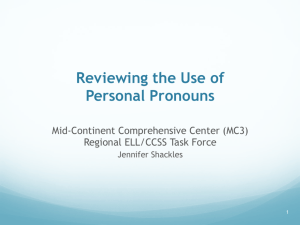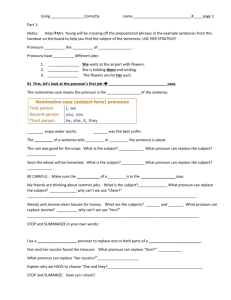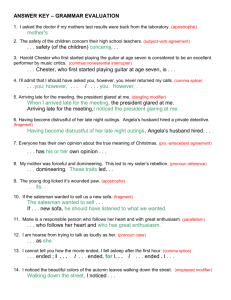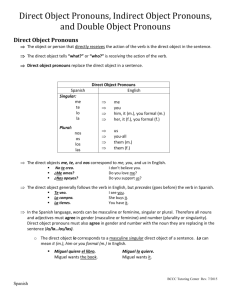Grammar Review
advertisement
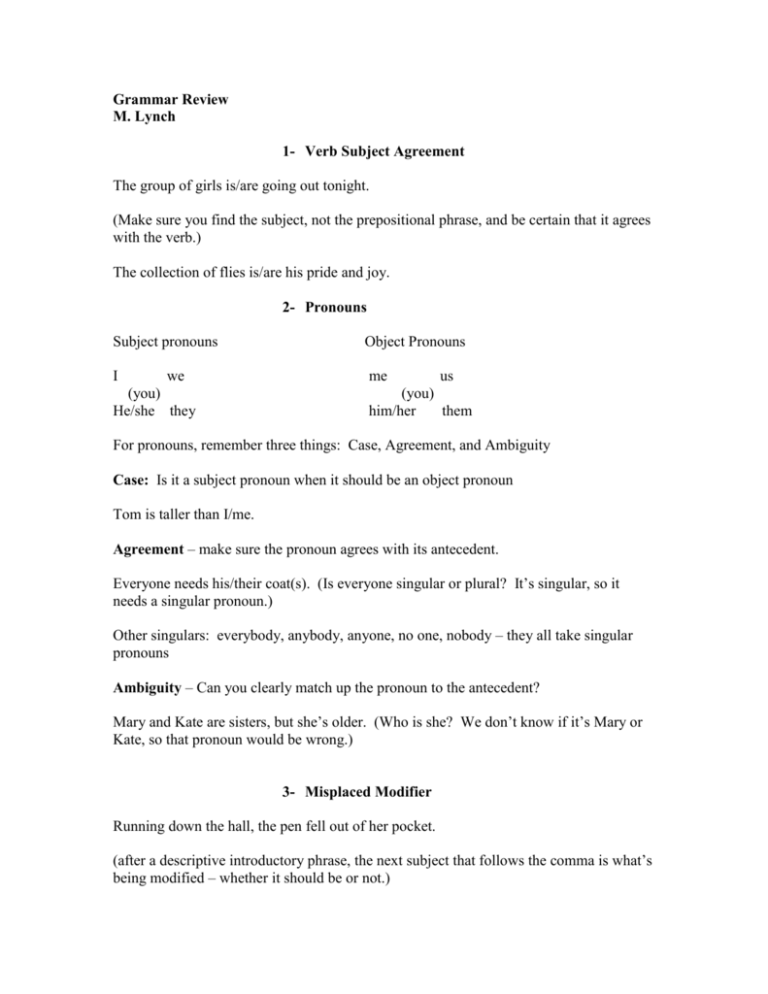
Grammar Review M. Lynch 1- Verb Subject Agreement The group of girls is/are going out tonight. (Make sure you find the subject, not the prepositional phrase, and be certain that it agrees with the verb.) The collection of flies is/are his pride and joy. 2- Pronouns Subject pronouns Object Pronouns I me we (you) He/she they us (you) him/her them For pronouns, remember three things: Case, Agreement, and Ambiguity Case: Is it a subject pronoun when it should be an object pronoun Tom is taller than I/me. Agreement – make sure the pronoun agrees with its antecedent. Everyone needs his/their coat(s). (Is everyone singular or plural? It’s singular, so it needs a singular pronoun.) Other singulars: everybody, anybody, anyone, no one, nobody – they all take singular pronouns Ambiguity – Can you clearly match up the pronoun to the antecedent? Mary and Kate are sisters, but she’s older. (Who is she? We don’t know if it’s Mary or Kate, so that pronoun would be wrong.) 3- Misplaced Modifier Running down the hall, the pen fell out of her pocket. (after a descriptive introductory phrase, the next subject that follows the comma is what’s being modified – whether it should be or not.) Better: While running down the hall, the pen fell out of her pocket. 4- Who/That The mailman, who/that I’ve known for years, is retiring. 5. further/farther Use further to discuss figurative distance, and farther to discuss literal distance. We will discuss this further when we drive farther down the road. 6. Neither/nor and Either/or The rule: the verb should agree with the subject that’s closer to the verb. Neither her sisters nor Mary is/are going out tonight. Neither Mary nor her sisters is/are going out tonight. 7. Would of/ Could of – don’t ever use either – they’re wrong. She would have gone back, but she wasn’t sure where the rest of the group was. She would’ve gone back, but she wasn’t sure where the rest of the grou p was. 8. Titles – major works (novels, newspapers, tv shows, etc.) should be underlines. Less significant works (poems, articles, essays) should be in quotes. 9 Change in voice 1st person – I, me, us, we 2nd person – you 3rd person – one, he, she, they Once you start in a particular voice, you must be consistent throughout. You can’t change voices. 10. Among/Between Use between when you’re discussing two people or things. Use among when there are three or more people or things. 11. Parallel Structure – sentences must be parallel, or balanced Before the party we need to bake a cake, send invitations, and gifts need to be wrapped. Better: Before the party we need to bake, a cake, send invitations, and wrap gifts. 12. It’s/ Its It’s = it is Its = possessive – similar to his or hers, which don’t use apostrophes either. 13. double negatives – avoid at all costs Nobody doesn’t like that cake. Better: Everybody likes that cake. 14. Number and Amount Can be Counted Number Fewer Many Can’t be counted: Amount Less Much 15. Their/ They’re/There Their – possessive They’re – They are There – a place 16. Commas Splices Two sentences (independent clauses) shouldn’t be joined by a comma. Bad: I’m studying for my exam, I’m already prepared. Better: I’m studying for my exam, but I’m already prepared. Three ways to correct a comma splice: 1- replace the comma with a period 2- use a semi-colon 3- add a conjunction, such as and or but 17. effect/affect – Generally effect is a noun, and affect is a verb. I was affected/effected by the special effects/affects. 18. Then/Than Then – time Than – comparison Then, we decided that he is smarter than his brother is. 19. you’re/your you’re – you are your – possessive


